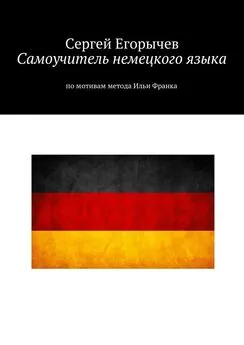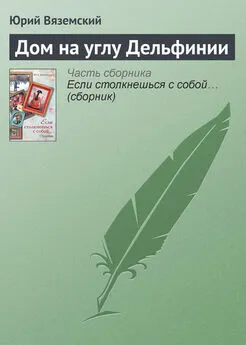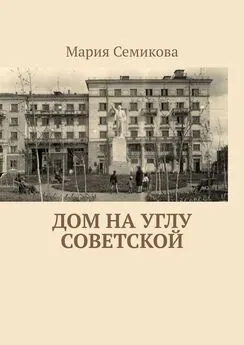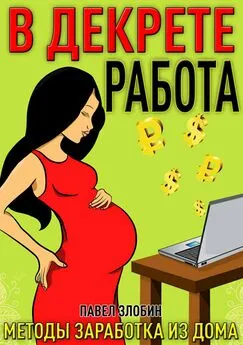Метод Франка - Дом на Пуховом углу
- Название:Дом на Пуховом углу
- Автор:
- Жанр:
- Издательство:неизвестно
- Год:0101
- ISBN:нет данных
- Рейтинг:
- Избранное:Добавить в избранное
-
Отзывы:
-
Ваша оценка:
Метод Франка - Дом на Пуховом углу краткое содержание
Дом на Пуховом углу - читать онлайн бесплатно полную версию (весь текст целиком)
Интервал:
Закладка:
wooden [wudn], bridge [brIG], each [JC]
There was a broad track, almost as broad as a road, leading from the Outland to the Forest, but before it could come to the Forest, it had to cross this river. So, where it crossed, there was a wooden bridge, almost as broad as a road, with wooden rails on each side of it. Christopher Robin could just get his chin on to the top rail, if he wanted to, but it was more fun to stand on the bottom rail, so that he could lean right over, and watch the river slipping slowly away beneath him. Pooh could get his chin on to the bottom rail if he wanted to, but it was more fun to lie down and get his head under it, and watch the river slipping slowly away beneath him. And this was the only way in which Piglet and Roo could watch the river at all, because they were too small to reach the bottom rail. So they would lie down and watch it ... and it slipped away very slowly, being in no hurry to get there.
One day, when Pooh was walking towards this bridge (однажды, когда Пух шел к мосту), he was trying to make up a piece of poetry about fir-cones (он пытался сочинить стихотворение о еловых шишках), because there they were, lying about on each side of him (потому что там они лежали повсюду, по обе стороны от него), and he felt singy (и он чувствовал себя песенно). So he picked a fir-cone up (поэтому он подобрал еловую шишку), and looked at it (и поглядел на нее), and said to himself (и сказал себе), "This is a very good fir-cone (это очень хорошая шишка), and something ought to rhyme to it (и что-то должно рифмоваться с ней)." But he couldn't think of anything (но он ничего не мог придумать). And then this came into his head suddenly (и тогда ему в голову пришло следующее / вот что):
Here is a myst'ry (вот тайна):
About a little fir-tree (о маленькой елке).
Owl says it's his tree (Филин говорит, это его дерево),
And Kanga says it's her tree[40] (а Кенга говорит, это ее дерево).
towards [tq'wLdz], piece [pJs], mystery ['mIstrI]
Вот тайна о маленькой ели.
Узнать вы ее бы хотели?
Взлетел на нее Филин еле,
А Кенге они надо-ели[41].
One day, when Pooh was walking towards this bridge, he was trying to make up a piece of poetry about fir-cones, because there they were, lying about on each side of him, and he felt singy. So he picked a fir-cone up, and looked at it, and said to himself, "This is a very good fir-cone, and something ought to rhyme to it." But he couldn't think of anything. And then this came into his head suddenly:
Here is a myst'ry:
About a little fir-tree.
Owl says it's his tree,
And Kanga says it's her tree.
"Which doesn't make sense," said Pooh (что = а это бессмысленно), "because Kanga doesn't live in a tree (потому что Кенга не живет в дереве[42])."
He had just come to the bridge (он как раз подошел к мосту); and not looking where he was going (и не глядя, куда он идет), he tripped over something (он обо что-то споткнулся), and the fir-cone jerked out of his paw into the river (и шишка выскочила из его лапы в речку).
"Bother," said Pooh (ах-ты, — сказал Пух), as it floated slowly under the bridge (когда она медленно уплыла под мост), and he went back to get another fir-cone which had a rhyme to it (и он пошел обратно за еще одной шишкой, которая /тоже/ имела рифму). But then he thought that he would just look at the river instead (но потом он подумал, что он просто посмотрит вместо этого на реку), because it was a peaceful sort of day (потому что это был такой спокойный день), so he lay down and looked at it (и он улегся и стал смотреть на нее), and it slipped slowly away beneath him (а она медленно ускользала прочь под ним)... and suddenly, there was his fir-cone slipping away too (и вдруг там была = показалась его еловая шишка, которая тоже ускользала прочь).
sense [sens], jerk [GWk], fir-cone ['fWkqun]
"Which doesn't make sense," said Pooh, "because Kanga doesn't live in a tree."
He had just come to the bridge; and not looking where he was going, he tripped over something, and the fir-cone jerked out of his paw into the river.
"Bother," said Pooh, as it floated slowly under the bridge, and he went back to get another fir-cone which had a rhyme to it. But then he thought that he would just look at the river instead, because it was a peaceful sort of day, so he lay down and looked at it, and it slipped slowly away beneath him ... and suddenly, there was his fir-cone slipping away too.
"That's funny," said Pooh (/это/ забавно, — сказал Пух). "I dropped it on the other side (я уронил ее на другой стороне)," said Pooh (сказал Пух), "and it came out on this side (а она выплыла на эту сторону)! I wonder if it would do it again (интересно, получилось бы это еще раз)?" And he went back for some more fir-cones (и он пошел назад за еще несколькими шишками).
funny ['fAnI], other ['ADq], some [sAm]
"That's funny," said Pooh. "I dropped it on the other side," said Pooh, "and it came out on this side! I wonder if it would do it again?" And he went back for some more fir-cones.
It did (получилось). It kept on doing it (получалось и дальше; to keep on — продолжать ). Then he dropped two in at once (потом он бросил /в воду/ сразу две), and leant over the bridge to see (и свесился с моста, чтобы увидеть) which of them would come out first (какая из них выплывет первой); and one of them did (и одна из них выплыла); but as they were both the same size (но так как они обе были одинакового размера), he didn't know (он не знал) if it was the one which he wanted to win (была ли это та, которую он хотел, чтобы она выиграла), or the other one (или другая). So the next time he dropped one big one and one little one (поэтому в следующий раз он бросил одну большую и одну маленькую), and the big one came out first (и большая выплыла первой), which was what he had said it would do (как он и думал: «которая была та, что он сказал, она сделает»; to say — считать , полагать , высказывать свое мнение ), and the little one came out last (а маленькая появилась последней), which was what he had said it would do (как он и полагал), so he had won twice (так что он выиграл дважды; to win — победить , выиграть )... and when he went home for tea (а когда он пошел домой ужинать[43]), he had won thirty-six and lost twenty-eight (он выиграл тридцать шесть, а проиграл двадцать восемь раз), which meant that he was (что означало, что он) — that he had (что он) — well, you take twenty-eight from thirty-six (ну, вычтите двадцать-восемь из тридцати-шести), and that's what he was (и это было то, /на сколько раз/ он /выиграл больше, чем проиграл/). Instead of the other way round (а не наоборот).
last [lRst], won [wAn], meant [ment]
It did. It kept on doing it. Then he dropped two in at once, and leant over the bridge to see which of them would come out first; and one of them did; but as they were both the same size, he didn't know if it was the one which he wanted to win, or the other one. So the next time he dropped one big one and one little one, and the big one came out first, which was what he had said it would do, and the little one came out last, which was what he had said it would do, so he had won twice ... and when he went home for tea, he had won thirty-six and lost twenty-eight, which meant that he was — that he had — well, you take twenty-eight from thirty-six, and that's what he was. Instead of the other way round.
And that was the beginning of the game called Poohsticks (и это было начало игры, названной Пустяки[44]), which Pooh invented (которую изобрел Пух), and which he and his friends used to play on the edge of the Forest (и в которую он и его друзья играли раньше на опушке Леса). But they played with sticks instead of fir-cones (но они играли палками вместо еловых шишек), because they were easier to mark (потому что их было легче отличать; to mark — метить , отличать ).
Now one day Pooh and Piglet and Rabbit and Roo were all playing Poohsticks together (и вот однажды Пух и Пятачок, и Кролик, и Ру — все вместе играли в Пустяки). They had dropped their sticks in (они бросили свои палки в /воду/) when Rabbit said "Go (когда Кролик сказал = скомандовал : марш)!" and then they had hurried across to the other side of the bridge (а затем они поспешили через = быстро перебежали на другую сторону моста), and now they were all leaning over the edge (и теперь они все свесились через край), waiting to see whose stick would come out first (ожидая /увидеть/, чья палка появится первой). But it was a long time coming (но на выплывание уходило много времени = но палки долго не выплывали ), because the river was very lazy that day (так как река была очень ленивой в тот день), and hardly seemed to mind (и, казалось, едва беспокоилась = ее едва беспокоило ; to mind — беспокоиться , тревожиться ) if it didn't ever get there at all (если она вообще никогда не попадет туда).
called [kLld], invent [In'vent], used [jHst]
And that was the beginning of the game called Poohsticks, which Pooh invented, and which he and his friends used to play on the edge of the Forest. But they played with sticks instead of fir-cones, because they were easier to mark.
Читать дальшеИнтервал:
Закладка:


![Коллектив авторов - Сад любви. Из английской романтической поэзии [litres (Метод обучающего чтения Ильи Франка)]](/books/1082624/kollektiv-avtorov-sad-lyubvi-iz-anglijskoj-romanti.webp)


